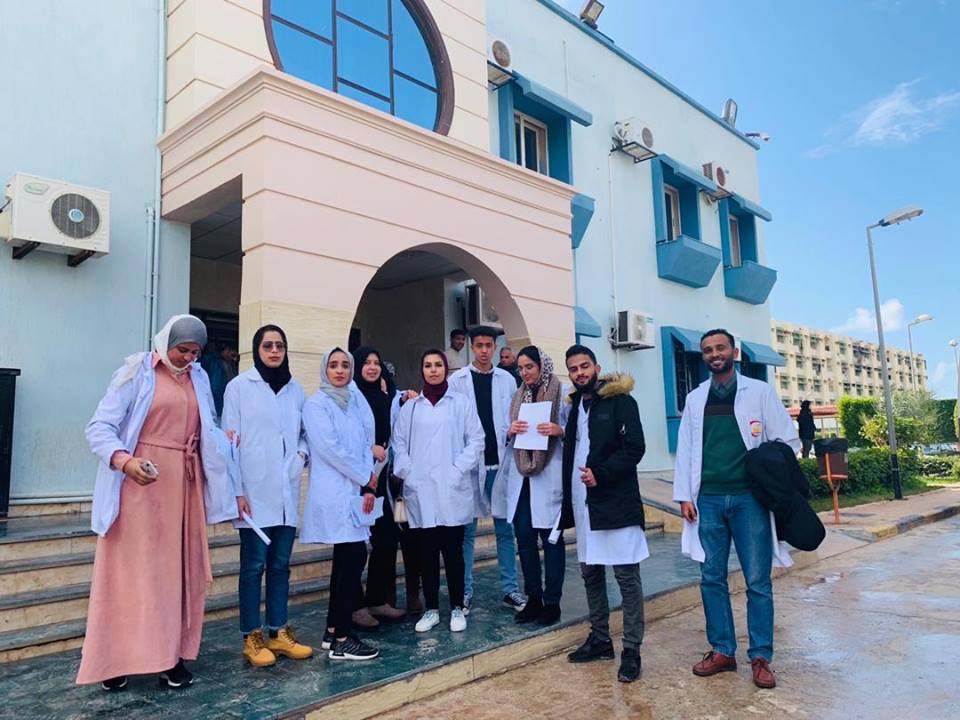[ Faculty Of Pharmacy ]

PharmD Program
As a response to calls from the health sector in Libya, in 2016, Faculty of Pharmacy at LIMU, moved to PharmD program.
The 5-years program curriculum – composed of 20 integrated core blocks – stresses on active learning, critical thinking, self-learning, problem-solving and clinical experience to prepare students for participating in a variety of professional settings.
Clinical portion of the program provides students with hands-on experience in hospitals, community pharmacy, government institution and other settings.
PharmD Program Vision
To make the PharmD program a distinguished model in the fields of pharmacy education, research, and community service.
PharmD Program Mission
Provide a distinguished doctor of pharmacy who possesses the clinical skills, communication skills, and professional ethics that enable them to meet the needs of the labor market and provide pharmaceutical care that ensures the contribution to the development of the health care provided to the community.
Goals of the PharmD program
- Provide and develop innovative leaders in the fields of pharmacy practice.
- Help students integrate basic, clinical, and behavioral sciences and use their applications to solve patient care problems in pharmaceutical care.
- Provide an open and safe professional learning environment that helps students acquire self-learning and life-long learning skills through the use of active learning strategies, critical thinking, integration, problem solving, innovation and creativity.
- Develop field training programs for program students and link them to the labor market.
- Direct and support the capabilities of the program students to conduct scientific research.
Study Plan of PharmD Program

Admission Terms and Procedure
- The applicant must have a high (secondary) school diploma or an equivalent that is recognized, certified and approved by the relevant authority.
- The applicant must be healthy enough to be able to keep up with studying in his/her specialty.
- The applicant must have achieved the required percentage for admission to the Faculty.
- If the applicant is not a Libyan national, the procedures for his/her stay in Libya during his term of study must be valid and in accordance with the rules, laws and regulations in force.
- The student must pay the fees and expenses of studying in accordance with the regulations and rules of the University.
- The number of students admitted to study should be proportional to the capacity and the capabilities of the Faculty.
- If the applicant meets all the previous conditions, he/she will undergo a personal interview whose outcome will determine whether he/she will be accepted or rejected. Additionally, the Faculty may, in accordance with its internal regulations, conduct entrance examinations for applicants.
- The student and his/her guardian will then submit a declaration stating that they have comprehensively and fully understood these regulations as well as the list of tuition fees decreed at the university and pledge their commitment to the provisions contained therein.
- The student’s guardian will then sign the contractual form with the University in all matters relating to the student’s study at the University. The University Registrar is authorized to represent the Faculty and thus sign the contract with the applicant’s guardian.
Experiential Education Committee
- Experiential Education Committee (EEC) at Faculty level is responsible for planning, designing and coordinating clinical training of students in the community pharmacies, hospitals or any other setting for clinical training.